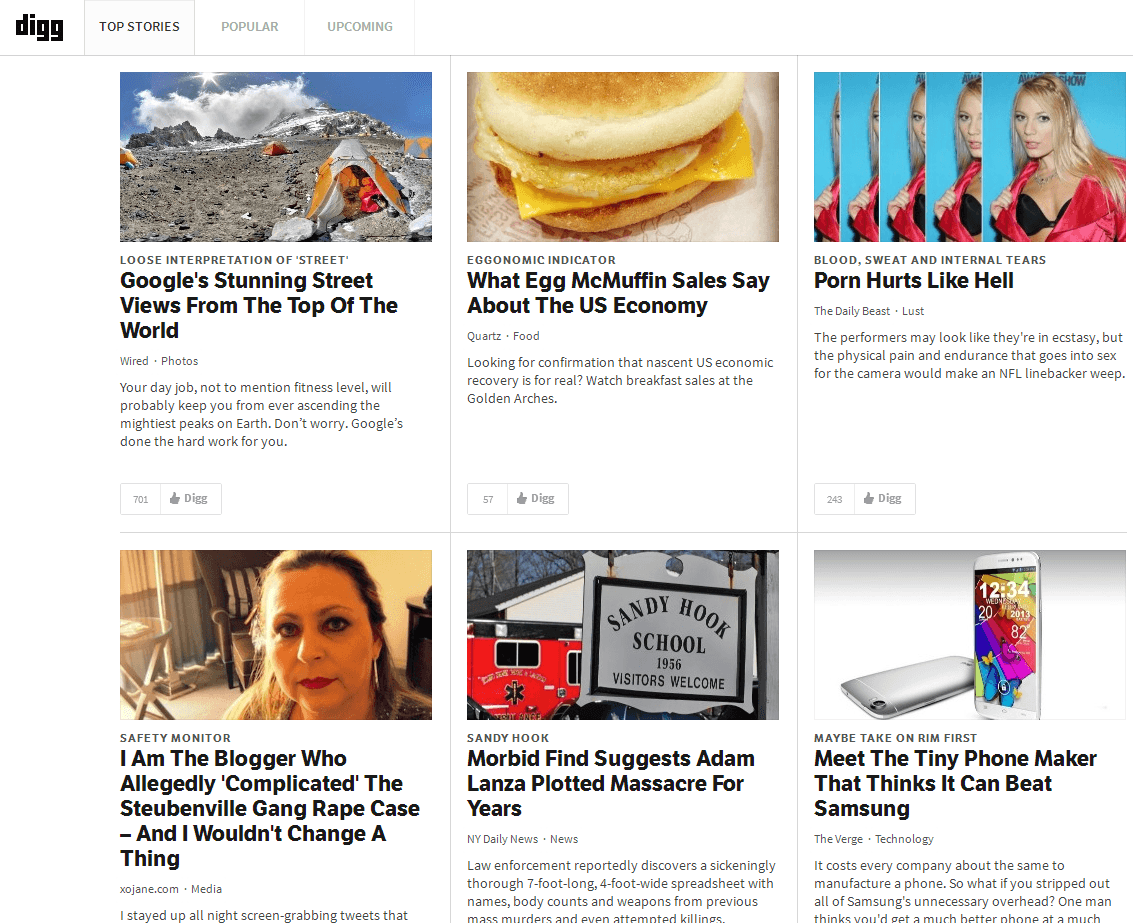So July 1st is looming in the distance with gray clouds hanging heavy and your anxiety is building as to what you’re going to do the day the Reader dies. No one really knows why.
Well, you have options! Everything is going to be okay! Here are the top 6 best ways to get your RSS Reader fix and come to terms with the loss of Google Reader, plus a readers digest on the best option and why. Whatever your grieving process, you’ll be happy you read this:
1) Digg
Ready and poised to take Google Readers place, Digg is set to launch their reader the day Google’s goes down. Yes, I did say Digg.com, and no, Digg isn’t dead. Not only are they expecting to take that coveted place but they plan on doing it better. The plan is to incorporate social media aspects that Google decided to nix from their reader. Social media today runs the internet. It’s the best way to determine what people are really interested in and Digg plans to use this as a filter system.
The only problem is that they’ll be in Beta until the giant falls so we don’t really know what exactly we’re getting. Keep in mind though that Digg is looking to make a social comeback to the forefront of what once was their domain.
If the interface is similar to their Pinterest-like news home page, I think I’ll take it! I find this format easy to consume, with large headlines, an excerpt, and easy access to “read more”. And if social shares is well integrated, this would be a fabulous solution.
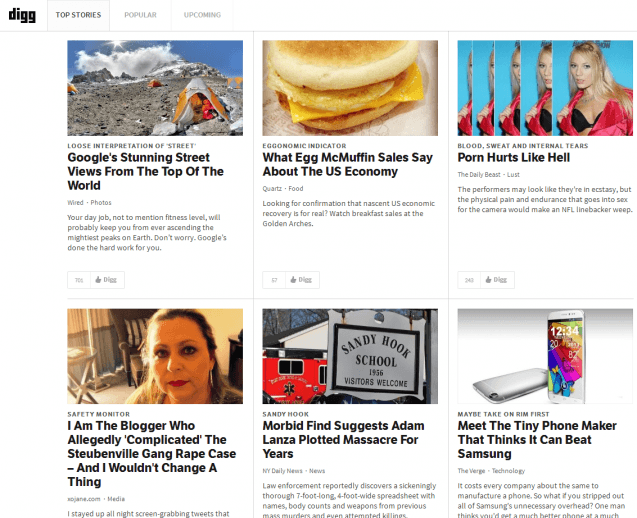
2) The Old Reader
Please forgive their name, for they know not what they’ve done. The Old Reader is designed in homage to Google, but much like Digg has decided to integrate social media so you can see what your friends think about the same things you’re reading. You’ll be able to transfer subscriptions, find friends via Facebook or Google contacts, and they’re even working on a mobile app so you always stay tapped in.
The downside? Their name really.
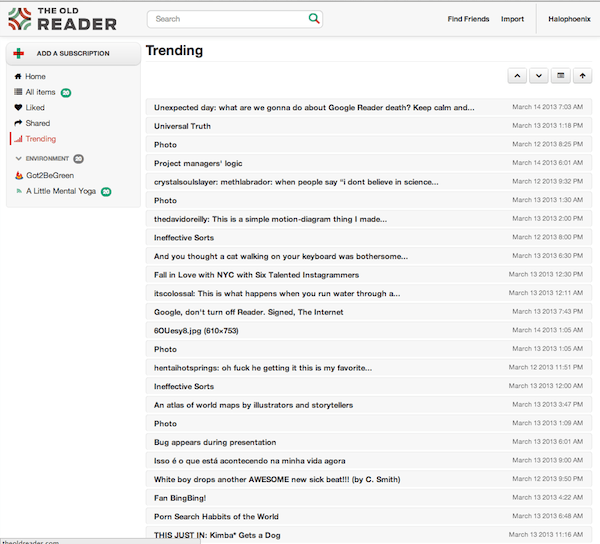
3) Feedly
The best thing about Feedly is that you can sync it with your Google Reader so any subscriptions you want to hang on to, just transfer them over with one click. This is the frontrunner and most talked about reader that may very well take the place of Google Reader. Why? Because it’s easy to navigate, everything is in a familiar format but with a nice hipster like spin to make it easier on the eyes.
I’ve yet to hear of a downside to using Feedly. As a matter of fact I’ve only heard of one: If the Feedly server is down then you can’t access the reader. How often is that really going to happen though?
It only took me minutes to get up and running with Feedly. I also love their apps, as I tend to consume most of my RSS feeds on my mobile. I’m pretty impressed, and excited to see how Feedly improves once they reach larger audiences.
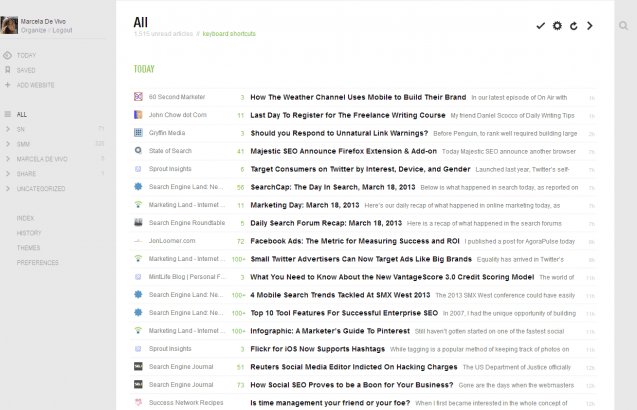
4) NewsBlur
You can opt for either the paid or free account on this one depending on just how much freedom you want. If you want everything unlimited then you’re going to want to shell out the twenty-four bucks, at least to try it out for a year. If you’d rather not pay then you’ll just have to deal with being limited to twelve subscriptions.
What’s nice is that when you’re viewing each article you can see them on the original site, much like with StumbleUpon. If that makes no difference to you though, NewsBlur is a good option because you can curate the content onto your own blurblog, and organize the content that you really liked vs. what you don’t, similar to the starring system Google Reader had.
Here’s an example of the view. I have to confess I prefer the sleek, clean interface that I’m used to with Google Reader. I, for one, don’t think I’ll be spending too much time on NewsBlur.
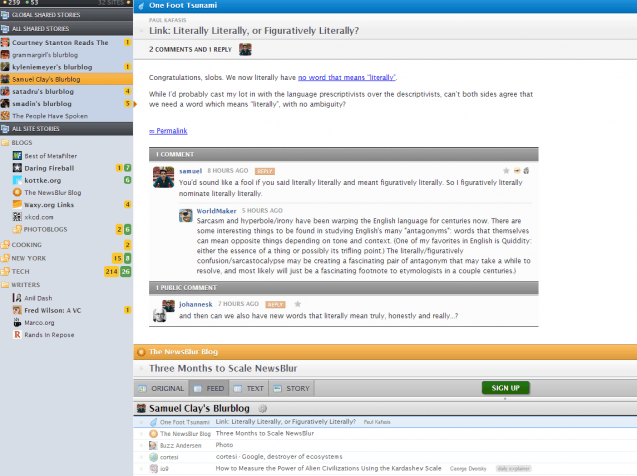
5) Bloglines
A well established reader Bloglines has it’s place in the reader hall of fame. Why is this reader awesome? Because you can make your feed location specific, widgets help you organize and optimize your use, and it’s super easy to sync your current subscriptions so that you don’t lose anything.
What I really don’t like about Bloglines is when you switch to the reader format from the widget format it opens in, it looks very similar to an inbox. Google Reader is a great app in that you can see the bold headlines and a snippet of the article. For those who enjoy visual displays, you can change your view to an image based view.
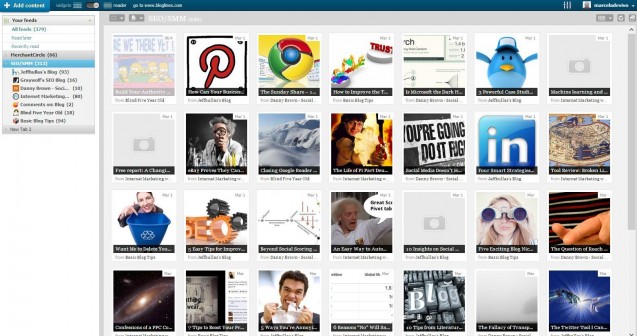
Personally … I prefer to consume my news in a text format. It’s easier for me to scan and quickly figure out the meaning of the content.
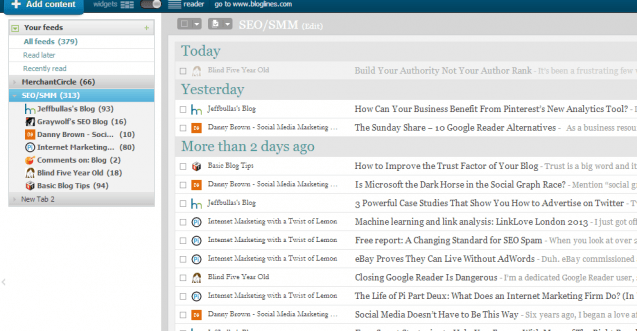
Bloglines is definitely up there in my list of Google Reader replacements.
6) Yahoo Pipes
Quite possibly the best option available for SEO and anyone in online marketing because it allows you to filter to your heart’s content, something not easily done on other readers. I’m talking down to the most minute detail. This ability to synthesize only what you really want to see from the multitude, maybe 500+ feeds your subscribed to, is a godsend if you’re using this for content curation, as well as to spur the creative machine when coming up with your next article.
Using Yahoo Pipes you can create feeds and filter them by keywords, or you can get very sophisticated and create RegEx filters of social media searches or trending topics.
The downside is that the reader itself is hideous. Once you switch out of the pipe like filtering tool and into the reader of your compiled articles it’s difficult to process the information. You can access Pipes through MyYahoo but you’re confined to a 150×150 slot that looks a lot like an inbox. What I love about Yahoo Pipes? I can create an RSS feed of my filtered RSS newsfeed.
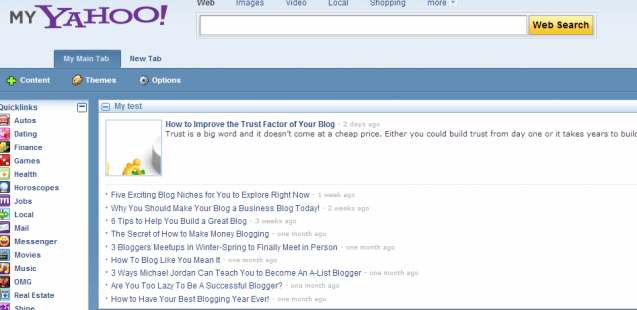
So What’s the Verdict?
Reading RSS feeds is such a key element of an online marketers life; through RSS feeds I stay on top of industry news, follow what other industry leaders are doing, and discover content to share through my social feeds. Finding a strong replacement is essential!
For now, I’m getting ready to use a combination of Yahoo Pipes and Feedly. Pipes give you the options to create an RSS Feed of your filtered subscriptions. Absolutely brilliant. So a great option is to subscribe to everything your heart desires on Pipes, then subscribe to that feed via Feedly, which hands down is the best option for those of us who have been battling addiction with Google Reader.
You get the best of both worlds, an aesthetically pleasing and functional reader as well as a fabulous filtration system that can pinpoint all the information you want to focus on no matter the industry.
Until Digg releases what it claims to be as the beast of readers, my final verdict is to opt for a diabolical combo of Pipes and Feedly.

